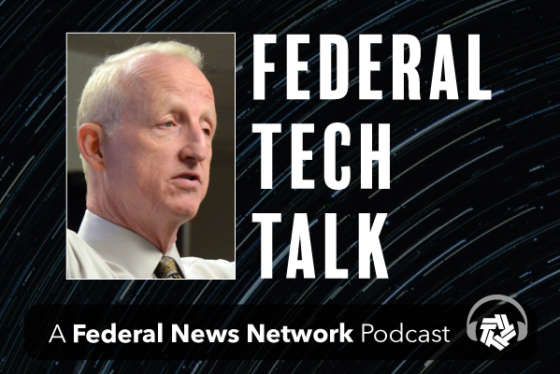Qlik: Blaze trails daily with data
Andrew Churchill, vice president of Sales at Qlick, joins host John Gilroy on this week's Federal Tech Talk to discuss data literacy and how being able to "argue...
Best listening experience is on Chrome, Firefox or Safari. Subscribe to Fed Tech Talk’s audio interviews on Apple Podcasts or PodcastOne.
If you work for the federal government and manage large data sets, you understand the complexity of getting the correct data “under one roof.” You may have silos and silos of information and you must be expected to develop actionable insights. The idea is that traditional query-based analysis cannot take advantage of disparate data sets.
Andrew Churchill is the vice president of Sales at Qlik and he joins host John Gilroy on this week’s Federal Tech Talk to provide insight on data literacy and federal information technology. For him, ‘data literacy’ means the ability to read, work with, and analyze date to provide a data-driven basis for making decisions.

Churchill gives an overview of an approach that starts with an enterprise catalogue and applies two engines to that information: an associative and a cognitive engine. He suggests that this way of handling data can achieve the goal of being able to “argue with the data” that can provide actionable intelligence.
This concept is reflected in an initiative of the federal government to have a Chief Data Officer for every agency. The characteristics of a CDO are to provide infrastructure competence, openness to innovation, and to deliver capability.
The bottom line is that a person who is tasked with analyzing data will not be limited to siloed data sets, they can take advantage of a concept called “associative difference.” A construct advocated by Qlik.
Copyright © 2025 Federal News Network. All rights reserved. This website is not intended for users located within the European Economic Area.






